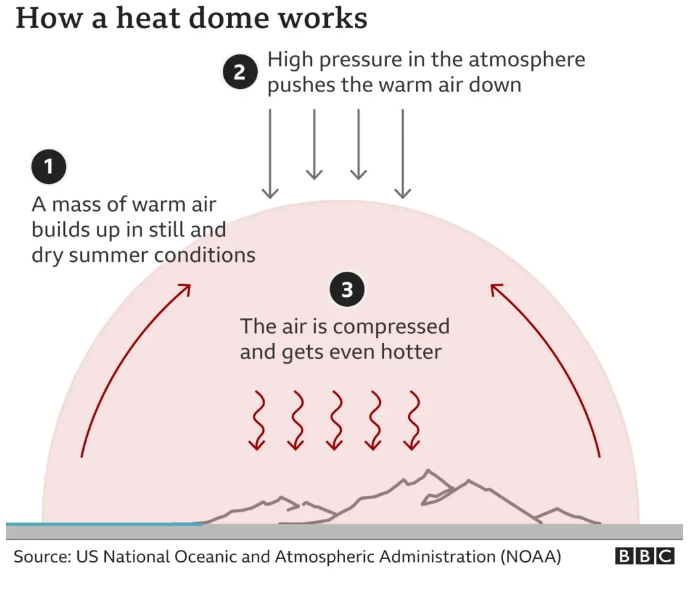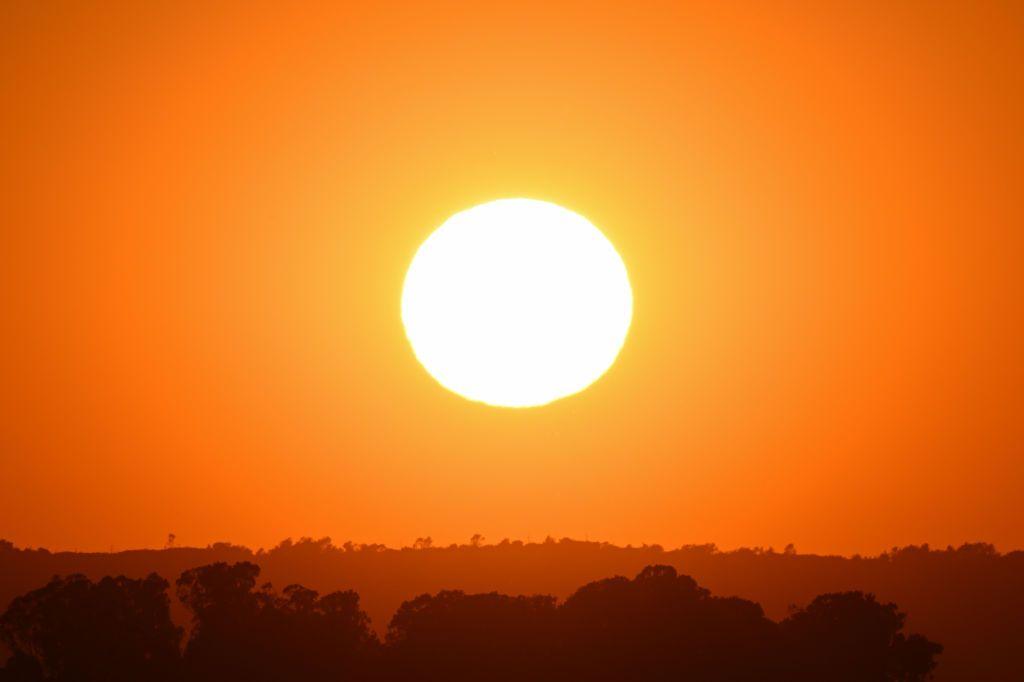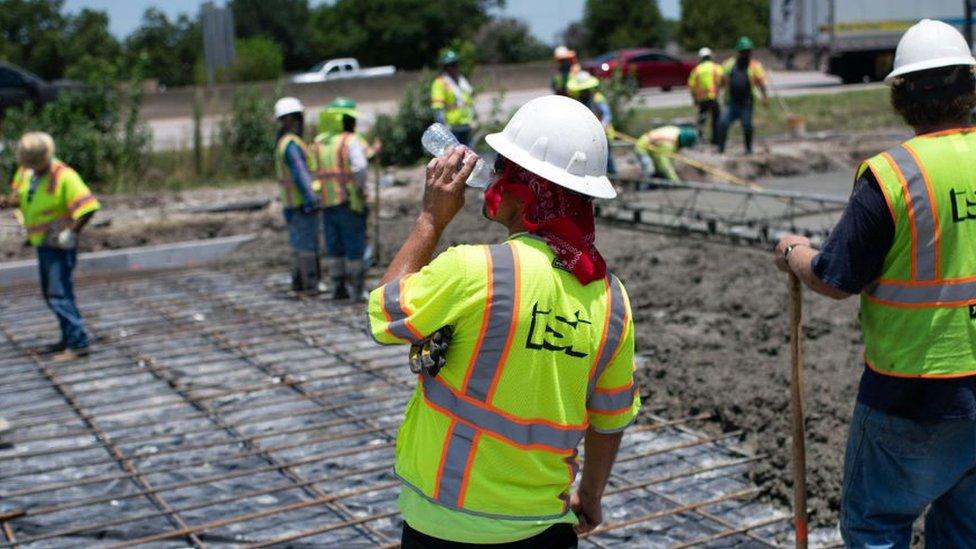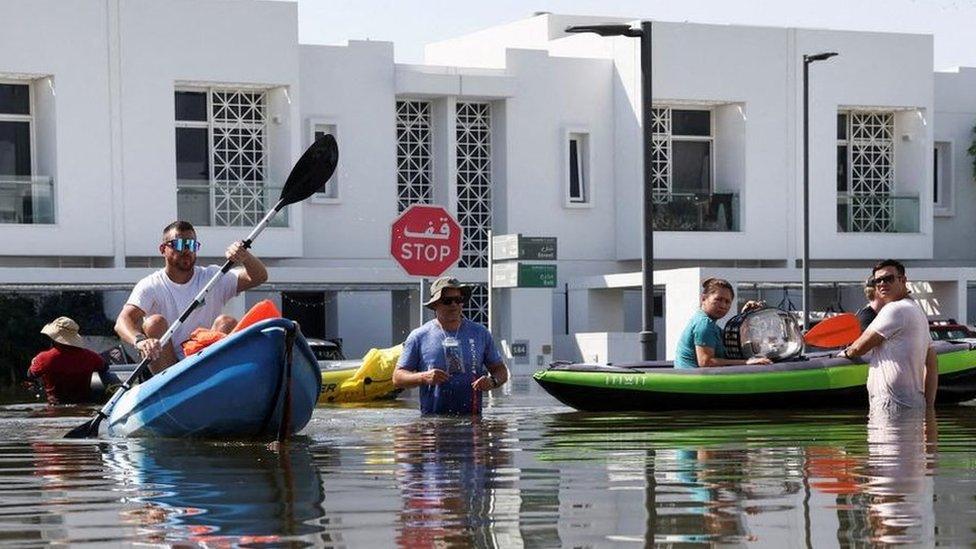US south-west could see hottest temperatures yet
Trump fans brave blazing Arizona heat to attend event
- Published
Forecasters are expecting temperatures to challenge records as millions of Americans across the southwest face what could be the hottest day yet of a sweltering heat wave.
Temperatures were predicted on Thursday to reach 114F (45.5C) in Phoenix, Arizona, 111F in Las Vegas, Nevada, 111F in Palm Springs and 121F Death Valley, California.
Two weeks before summer even officially starts, excessive heat warnings were in effect across parts of California, Nevada, Arizona and Texas. The heat warnings are expected to run until the end of Friday.
The National Weather Service (NWS) expects temperature records to be "tied or broken" Thursday with "little to no overnight relief from the heat".
The mercury is soaring as a result of a heat dome, an area of high pressure where hot air is pushed down and trapped, causing temperatures to soar over large areas.
Temperatures will be 20-30 degrees Fahrenheit above average for this time of year, according to the NWS.
Firefighters are on standby to submerge heat-stroke victims in ice and some popular hiking trails have closed in Arizona amid the triple-digit temperatures.
Californians deal with heat dome's scorching temperatures
In Phoenix, the hottest big city in the US, firefighters placed at least one heat-stroke victim inside human-sized immersion bags filled with ice cubes to lower the patient's body temperature on the way to hospital.
With 645 heat-related deaths last year in Maricopa County, where Phoenix is located, all of the city's fire department vehicles are being equipped with the bags.
On Thursday, police officers at Dream City Church in Phoenix said the fire service had also treated at least five people suffering from heat exhaustion at an event where former president Donald Trump was expected to speak.
Arizona is considered a swing state, and hundreds of people braved the dangerous temperatures in hopes of seeing one of Trump's first campaign events since he was found guilty of falsifying business records.
To contend with the heat, the city is also opening two overnight cooling stations this week for the first time.
The NWS advised that hikers at the Grand Canyon use extra caution when outdoors for an extended period of time at lower elevations, where 111F heat can be oppressive.
The excessive heat also led to Arizona officials closing popular trails at Camelback Mountain and Piestewa Peak.
Heat dome brings scorching temperatures to parts of US
The triple-digit heat is a particular danger for homeless people, advocates said, which has led to a growing demand for temperature-controlled shelter.
Central Arizona Shelter Services (CASS) has the capacity to take in 600 people when temperatures reach these levels, its chief executive, Phillip Scharf, told BBC News on Wednesday.
And that need is noticeable at the moment, he said.
"We have an increase in people looking for services and a change in the behaviour because it’s oppressively hot outside,” Mr Scarf said.
Not only are people looking for a place to sleep but they are also looking for a place to stay during the day as the heat reaches record temperatures, he said.
CASS, the largest single shelter in the state of Arizona, offers Phoenix-area residents shelter, water, food and more.
It's a service that is much-needed, as homeless and low-income residents make up the largest population of heat-related deaths in Maricopa County - where Phoenix is located.
Extreme heat is also plaguing areas of Texas this week. In Brownsville, located in the southern part of the state near the Mexican border, the local NWS office recorded a never-before-reached daily temperature of 100F on Wednesday.
The extreme temperatures are forecast to spread north by the weekend to the Pacific north-west.

Related topics
More on extreme heat
- Published5 June 2024

- Published4 June 2024

